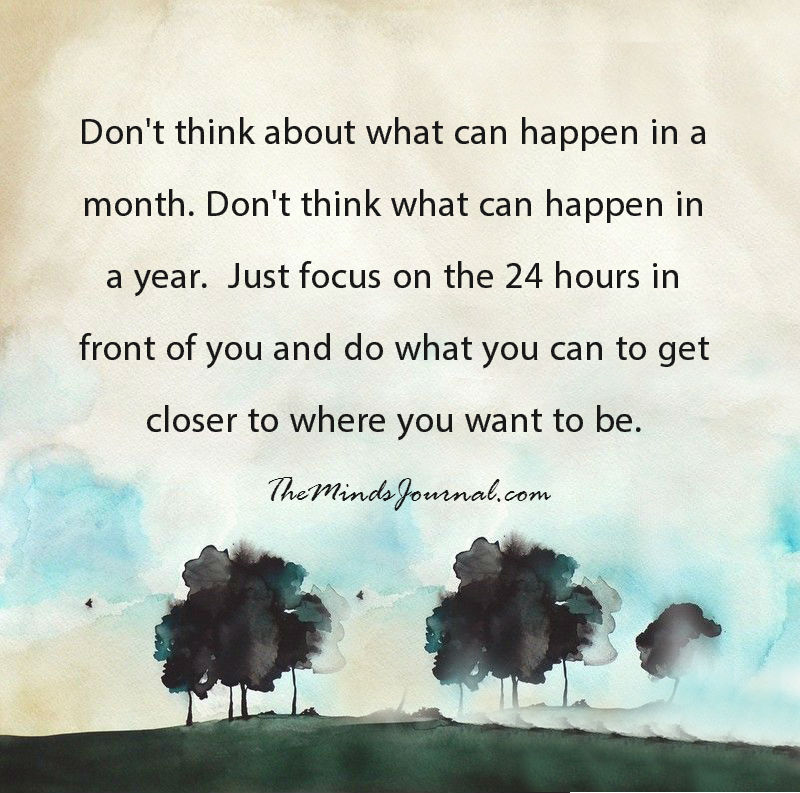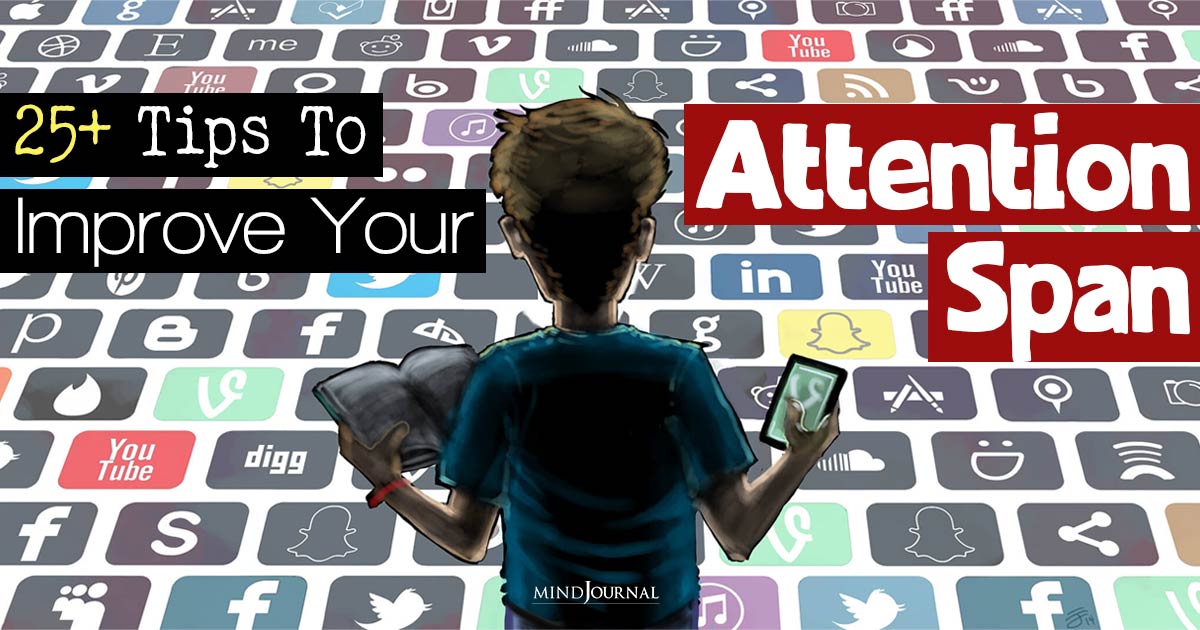Are you struggling to stay focused and productive? Ever wondered “How to increase my attention span?” If you’re burdened with constant distractions in this fast-paced world, let’s explore some practical tips on how to improve attention span and boost your productivity.
Why we are struggling with a short attention span
Before we can understand how to increase attention span and why we have a short attention span, let’s understand attention span meaning.
Attention span meaning: Attention span refers to how long a person can focus their attention on a particular task, object or activity without getting distracted. With constant digital interruptions, people’s ability to concentrate and their attention span has declined substantially in recent years.
In today’s world, we are constantly bombarded with information from various sources, including social media, email, text messages, and notifications. This constant stream of information can make it difficult to stay focused on any one task for an extended period of time.
Additionally, many of us have developed a habit of multitasking, which can actually decrease our ability to stay focused and attentive.
The increasing use of technology and the internet has also been linked to shorter attention spans, as we have become accustomed to quickly scrolling through content and consuming information in bite-sized chunks. All of these factors can contribute to the struggle with a short attention span.
Related: 5 Reasons Why Does Your Mind Wander Away While Working?
However, there are ways to counter the effects of information overload, incessant digital interruptions and multitasking by learning how to increase attention span.

How to improve attention span
Wondering “how to increase my attention span”? If you find yourself regularly struggling to focus, getting easily distracted or unable to retain information, you may benefit from learning how to stay focused and improve concentration.
Now that you know attention span meaning, here is an in-depth, step-by-step guide on how to improve focus and attention span with practical tips and strategies –
1. Minimize distractions
One of the most effective ways to improve your attention span is to minimize distractions. This can include turning off your phone or putting it on silent mode, closing unnecessary tabs on your computer, and finding a quiet place to work or study.
2. Exercise your brain
Mental “exercise” through word games, puzzles and brainteasers can improve focus and boost attention span over time. Searching for words or remembering details challenges your brain’s ability to concentrate and retain information.
Studying a new language or learning a musical instrument also exercises different parts of your brain correlated with attention.
Related: 8 Benefits Of Reading Regularly According To Science
Start with simple word search and crossword puzzles. As you improve your attention span, tackle more challenging IQ tests and brainteasers. Avoid mindless activities like social media scrolling that require little focus. This is how to improve attention span.
3. Develop attention routines
Want to learn how to improve focus? Build strong attention habits by incorporating routines into how you approach tasks that require focus. By following the same steps every time, you train your brain to enter a “focus mode.”
For example, turn on the same playlist when you study, sit in an identical spot at your desk or use a timer to break your work into intervals. Committing to a regular studying or working schedule can also trigger your brain’s ability to concentrate at those set times.
The more that you can establish consistent external cues to signal focusing, the easier it will become for your brain to learn how to improve attention span when needed.
4. Get enough sleep
Sleep is essential for cognitive function, including attention and focus. If you’re not getting enough sleep, your attention span is likely to suffer. Aim for at least 7-8 hours of sleep per night to improve attention span. This is the simplest answer to the question “how to increase my attention span?”
5. Exercise regularly
Another great tip for learning how to increase attention span is physical exercise. Exercise is not only good for your physical health, but it can also improve your cognitive function, including attention and focus.
Aim for at least 30 minutes of moderate exercise per day to help improve concentration.
6. Practice mindfulness
Mindfulness is the practice of being present and fully engaged in the moment. By practicing mindfulness, you can overcome short attention span and improve your ability to stay focused and attentive.
Try practicing mindfulness meditation or simply taking a few minutes each day to focus on your breath.

7. Break tasks into smaller chunks
Large tasks can be overwhelming and difficult to focus on for an extended period of time. Breaking tasks into smaller, more manageable chunks can make them easier to tackle and improve your ability to stay focused.
Looking for more tips on how to improve focus? Read on to find out how to stay focused and improve concentration.
Related: The Power of Focus in a Distracted World
8. Use a timer
Using a timer can help you stay focused and avoid distractions. Set a timer for a specific period of time, such as 25 minutes, and focus solely on the task at hand until the timer goes off.
Then take a short break before starting the timer again for another period of focused work.
9. Practice active listening
Active listening involves fully engaging with the person speaking and paying attention to what they are saying. By practicing active listening, you can improve your ability to stay focused and attentive in other areas of your life as well.
10. Reduce multitasking
Multitasking can be tempting, but it can also be detrimental to your ability to focus and stay attentive. Instead of trying to do multiple things at once, focus on one task at a time and give it your full attention.
This is a great way to learn how to improve attention span and how to stay focused.
11. Take breaks
Taking regular breaks can help improve concentration and prevent burnout. Take a short break every 30-45 minutes to stretch, move around, or do something enjoyable before returning to your work or task. This is how to improve focus.
12. Improve your diet
Eating a healthy, balanced diet can help improve your cognitive function and attention span. Aim to eat a variety of nutrient-rich foods, including fruits, vegetables, whole grains, lean proteins, and healthy fats.
13. Practice visualization techniques
Visualization techniques involve creating mental images of tasks or goals to help teach how to focus and be attentive. Take a few moments each day to visualize yourself completing tasks or achieving your goals in vivid detail.
Related: How to Focus on Relationships in the Age of Distraction
14. Use aromatherapy
Certain scents, such as lavender, peppermint, and rosemary, are believed to improve focus and concentration. Try using essential oils or lighting scented candles to improve your attention span.
15. Try cognitive training apps
There are many cognitive training apps available that are designed to improve attention and focus. Try using one or two of these apps regularly to help improve concentration.
16. Take up a mindful hobby
Engaging in a mindful hobby, such as painting, knitting, or gardening, can help you learn how to focus and stay attentive. By practicing mindfulness while engaging in these hobbies, you can transfer these skills to other areas of your life.
17. Use positive self-talk
Positive self-talk involves replacing negative thoughts with positive, encouraging ones. By using positive self-talk, you can improve your confidence and ability to stay focused and attentive. Keep this in mind the next time you ask yourself “how to increase my attention span?”
18. Create a to-do list
Creating a to-do list can help you organize your tasks and improve your ability to stay focused and attentive. Prioritize tasks on your to-do list and focus on completing one at a time.
19. Practice deep breathing
Deep breathing can help calm your mind and improve your ability to stay focused and attentive. Take a few deep breaths before starting a task or during a break to learn how to stay focused and improve concentration.
20. Use a standing desk
Standing desks can help improve your posture and increase blood flow to the brain, which can improve your cognitive function and attention span. Try using a standing desk for a portion of your workday to improve your attention span.

Want more practical tips on how to increase attention span? Here we go.
21. Limit screen time
Excessive screen time can be detrimental to your attention span and cognitive function. Try limiting your screen time, especially before bed, to help improve concentration.
Related: Negative Effects Of Instagram On Mental Health: 7 Ways Instagram Ruins Lives
22. Seek professional help
If you’ve tried various strategies and still struggle with maintaining your attention and focus, it may be helpful to seek professional help, if needed. Speak with your doctor or a mental health professional to explore potential underlying causes and treatment options.
23. Get outside
Spending time in nature can have a calming effect and improve your ability to stay focused and attentive. Try taking a walk outside during your breaks to help you learn how to focus.
24. Listen to music
Music can help improve your mood and focus, particularly instrumental music or music without lyrics. Try listening to music while you work or study to improve your attention span.
25. Practice gratitude
Practicing gratitude involves focusing on the things you are grateful for, which can improve your overall mood and cognitive function. Take a few moments each day to reflect on things you are grateful for to increase your concentration.
26. Use a white noise machine
White noise machines can help block out distracting sounds and improve your ability to stay focused and attentive. Try using a white noise machine while you work or study to help you learn how to focus..
27. Take care of your mental health
Mental health issues, such as anxiety and depression, can negatively impact your attention span and cognitive function. Take care of your mental health by seeking treatment, if necessary, and practicing self-care activities, such as meditation and exercise, to help improve your attention span.
Takeaway
Improving your attention span is a process that takes time and effort, but it’s worth it in the end. By learning attention span meaning and implementing these tips and strategies, you can improve your ability to stay focused and attentive, leading to greater productivity, success, and overall well-being.
With consistency and patience, you’ll slowly but surely strengthen your brain’s executive functions that govern how to improve attention span.
Related: 3 Steps To Improve Focus
Frequently Asked Questions (FAQs):
What causes low attention span?
Low attention span can be caused by various factors, including distractions, stress, fatigue, anxiety, ADHD, and other mental health conditions.
How do you fix a short attention span?
Improving attention span can be achieved through various strategies, such as minimizing distractions, practicing mindfulness, getting enough sleep, and exercising regularly.
How can I train my brain to focus?
You can train your brain to focus by practicing techniques such as mindfulness, meditation, deep breathing, and cognitive training exercises.










Leave a Reply